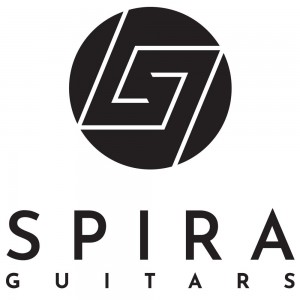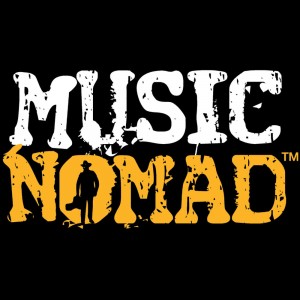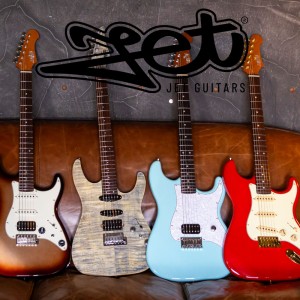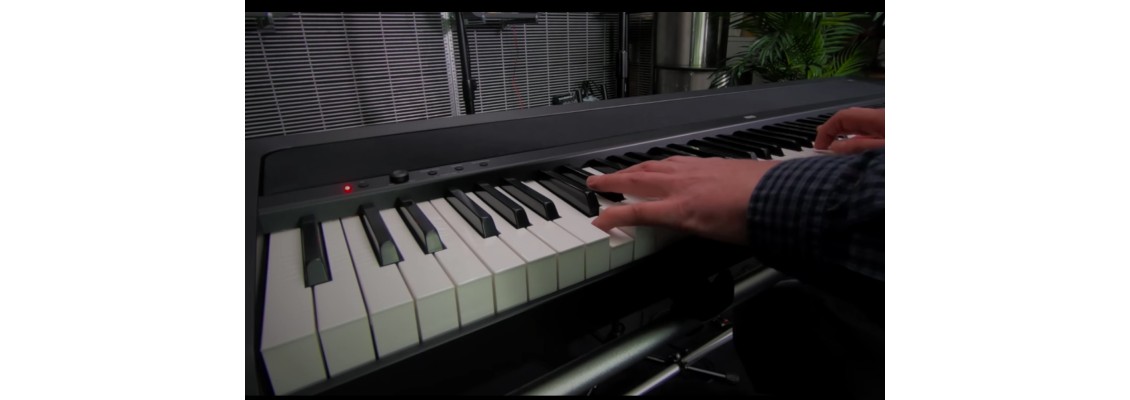
Getting Started on Digital Piano: A Guide for Beginners
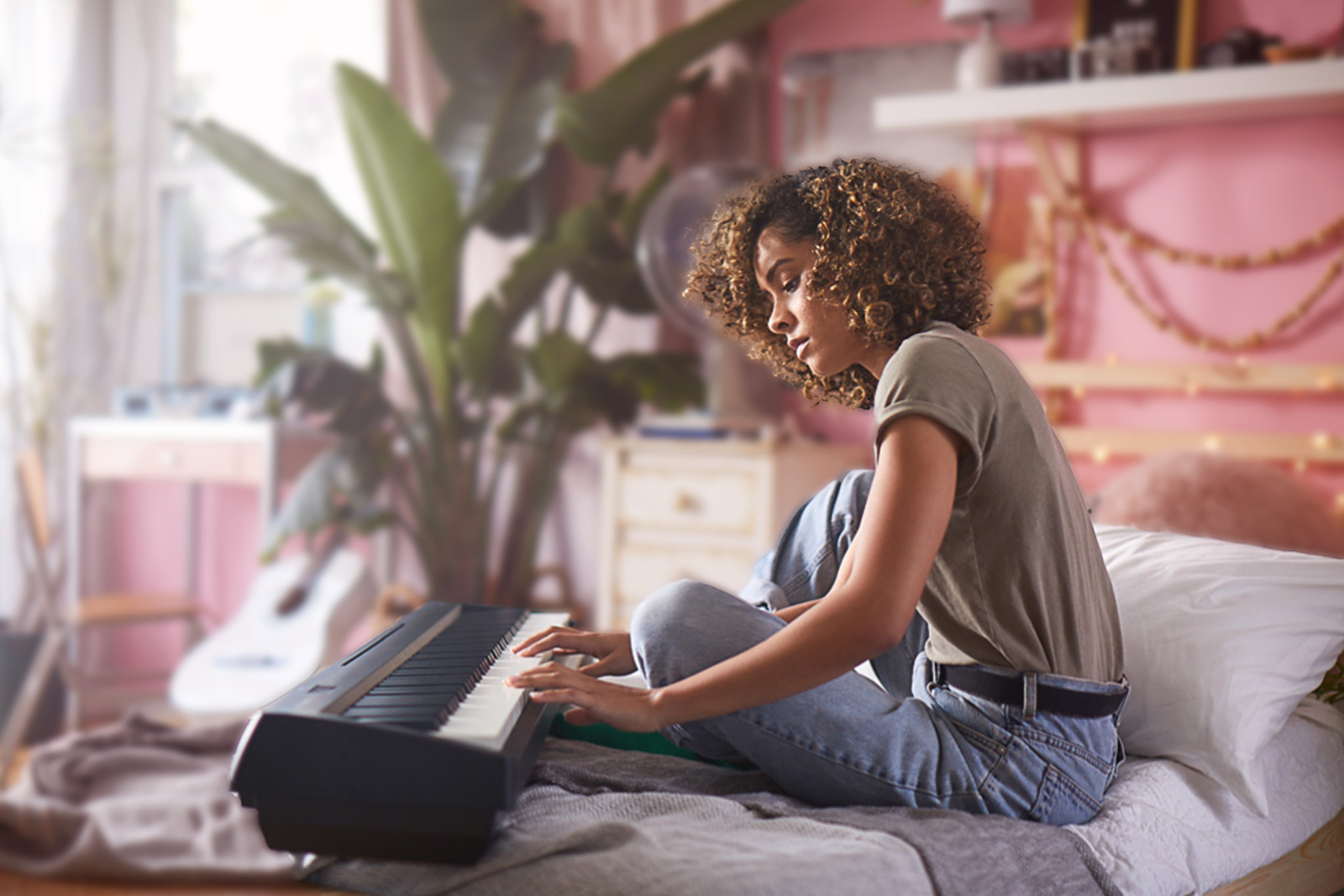
Learning how to play the piano can be a rewarding experience. Whether you're an adult looking to pick up a new hobby or a parent interested in giving your child a head start in music, a digital piano can be a great way to start. In this guide, we'll explore some tips and tricks to help you get started on your musical journey.
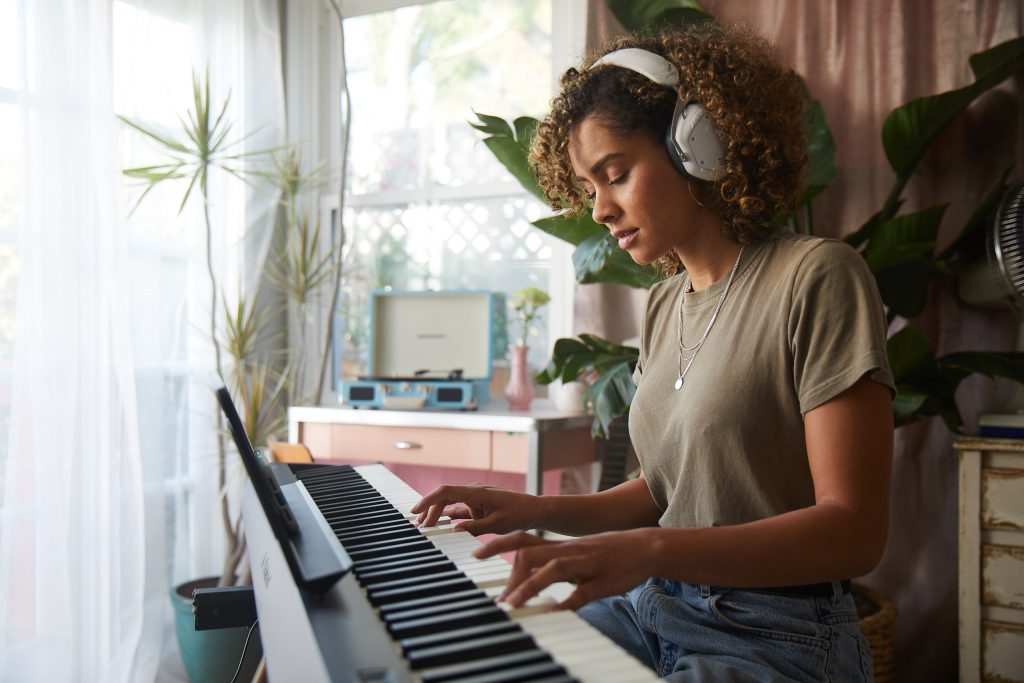
Why Choose a Digital Piano?
Digital pianos can be more convenient than traditional pianos for beginners for a few reasons:
- Cost: Digital pianos can be significantly less expensive than traditional pianos, making them more accessible to beginners who may not want to invest a lot of money in their instrument before they are sure that they want to commit to playing.
- Size and Portability: Digital pianos are typically smaller and more portable than traditional pianos, which makes them a better option for beginners who may not have a lot of space in their home or who want to take their instrument with them when they travel.
- Volume Control: Digital pianos have volume control, which allows beginners to practice without disturbing others. This can be especially important for beginners who live in apartments or other shared living spaces.
- Built-in Features: Many digital pianos have built-in features that can be helpful for beginners, such as metronomes, recording capabilities, and a variety of instrument sounds. These features can make practice more engaging and enjoyable for beginners.
- Maintenance: Traditional pianos require regular maintenance, such as tuning, which can be expensive and time-consuming. Digital pianos, on the other hand, require little to no maintenance, which can be more convenient for beginners who may not have the time or resources to maintain a traditional piano.
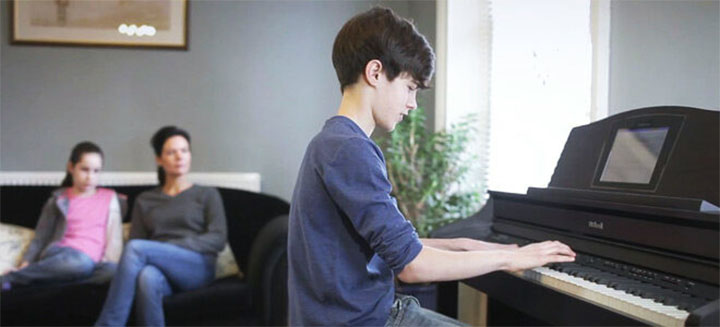
Go Timmy
Choosing a digital piano
Before you start playing, you need to choose the right digital piano for your needs. There are several factors to consider when choosing a digital piano, including:
- Budget: Digital pianos can range in price from a few hundred to several thousand dollars. As a beginner presumably the lower end of the scale will be better but try and get the best instrument you can afford.
- Number of keys: A full-size piano has 88 keys. If you're a beginner, you might not need a full-size piano. A 61-key or 76-key piano might do everything you need.
- Touch sensitivity: Look for a piano with touch-sensitive keys. This means the keys will respond to how hard or soft you play, just like an acoustic piano. It will benefit you greatly in the long run.
- Weighted keys: Weighted keys will simulate the feel of an acoustic piano. This means the keys will require more force to play the lower notes and less force to play the higher notes.
- Polyphony: Polyphony refers to the number of notes a piano can produce at once. A higher polyphony means you can play more complex pieces without losing notes.
- Connectivity: Consider whether you want your piano to have built-in speakers, MIDI connectivity, or USB connectivity.
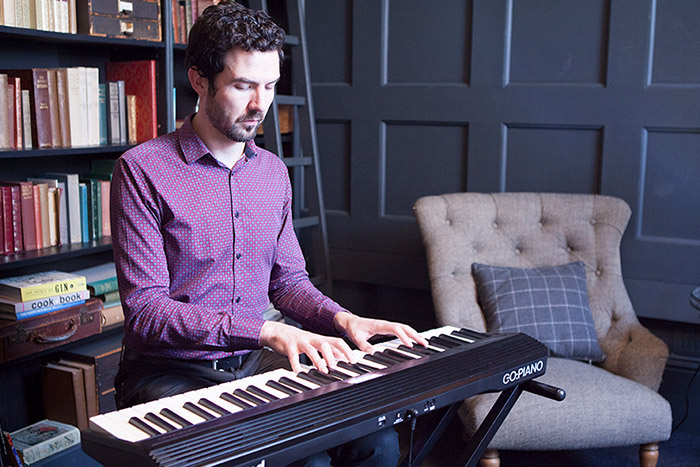
But maybe smile, this is supposed to be fun!
Setting up your digital piano
Once you have your digital piano, you'll need to set it up. Find a comfortable and quiet place to play, away from distractions. Set the piano at the right height, so your elbows are at a 90-degree angle when your fingers are on the keys. Make sure your piano is plugged in and turned on.
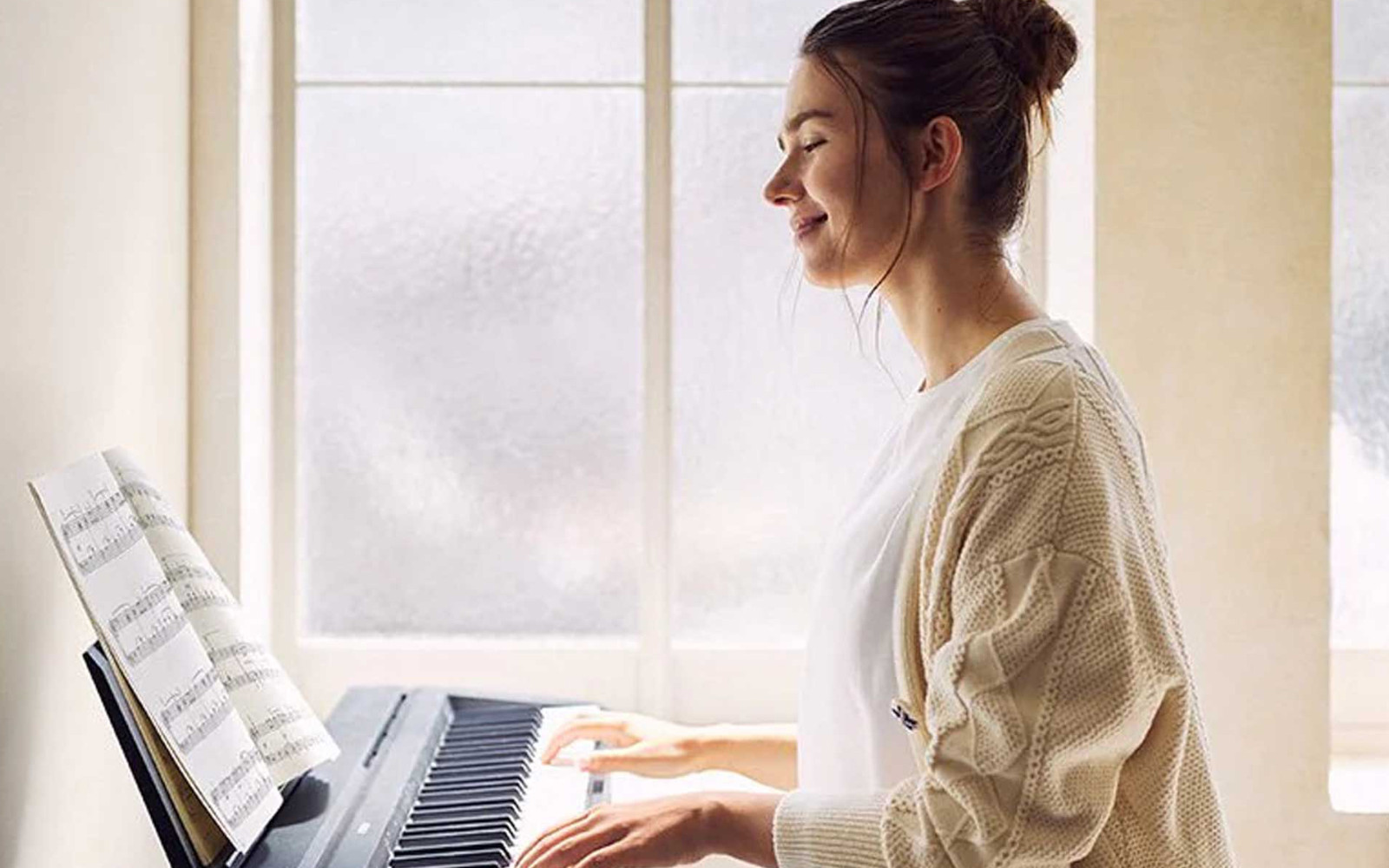
Good posture will make you happier.....
Learning the basics
Now that you're set up, it's time to start playing. Here are a few basics to get you started:
- Hand positioning: Start with your right hand on the keys to the right of middle C and your left hand on the keys to the left of middle C. Your right thumb should be on middle C.
- Reading sheet music: Learn how to read sheet music. Start with simple songs and gradually work your way up to more complex pieces.
- Practicing: Set aside time each day to practice. Start with short practice sessions and gradually increase the time as you become more comfortable.
- Playing scales: Scales are a great way to warm up and build finger strength. Start with C major and work your way through the other keys.
- Finding resources: Look for resources online, such as YouTube tutorials or online piano courses, to supplement your learning.
A few Piano Suggestions to get you Started
Carry-On 88 Key Folding Piano - A very basic piano which is great if space is a serious issue. Weighing in at only 1.6kg and measuring only 33cm long when folded, the Carry-on folding piano is a unique full-length 88-key piano in a foldable, easy to store and portable format. Thanks to its clever design, the keys feel like a real instrument making the Carry-on piano the perfect solution for entry-level students to seasoned professionals. Play any time using headphones or the built-in stereo speakers. With 128 sounds and accompaniments and MIDI over USB, this is the ultimate go anywhere piano practice and recording system.
Roland GO:61P - Digital Piano - An excellent choice for beginners. The Roland Go:Piano Digital Piano in black presents a 61-key keyboard that is both compact and lightweight, for ultimate convenience. Featuring expressive touch response, the standard full-size keys are inspired by the keyboards on acoustic grand pianos. They feature an ivory touch surface for a comfortable feel that'll support your developing technique. Offering premium performance, the Go:Piano is designed to be operated fully wirelessly, with battery power and Bluetooth connectivity. Featuring onboard Bluetooth speakers, this Roland digital piano allows wireless smartphone connection. Connect via Bluetooth to Roland's free Piano Partner 2 app to access a host of great learning aids
Alesis Concert 88 Key Semi Weighted Digital Piano - The Alesis Concert is a full-featured digital piano with 88 full-sized semi-weighted keys with adjustable touch response. The Concert features 10 realistic built-in voices: Acoustic Piano, Bright Piano, Electric Piano, Harpsichord, Drawbar Organ, Church Organ, Synth, Strings, Bass and Clavi. Customize the voices by combining any two at once in Layer Mode for a full, rich tone. They can also be assigned to only the left or right hands in Split Mode. You can even add adjustable Reverb and Chorus to further tailor your sound. With powerful 20-watt built-in speakers and a 128-note maximum note polyphony, Concert delivers ultra-realistic sound with great playing experience.
Roland FP-10BK - Compact Piano with 88 Note Velocity Sensitive Keyboard - When inspiration strikes, take a seat at the latest model in Roland’s renowned FP piano series; the entry-level FP-10. This affordable digital piano is always ready to play, with a reassuringly authentic feel from the 88-note PHA-4 Standard keyboard, joined by Roland’s evocative SuperNATURAL piano tones through onboard speakers or headphones. With its portable, space-saving design, the FP-10 is the ideal instrument for home use, whether you’re practicing techniques in the spare room or giving performances in the living room. Plus, with Bluetooth connectivity and powerful onboard features not offered by any other digital model at this price, the FP-10 is the ideal second piano for more experienced players.
Korg B2-BK Digital Piano, Black - This world-famous German-made piano is beloved by countless pianists for its diverse range of expressive power. The B2 is a new generation of digital piano from KORG focused on accessibility and ease of use. Perfect as a first piano for a new player, they've paid special attention to the experience of playing a real piano. B2 is packed with carefully selected sounds, starting with legendary grand pianos from around the world. Software and a variety of connectors come standard for a truly modern piano experience. The B2 provides a total of 12 sounds that cover a diverse range of genres, starting with five pristine piano sounds from its new piano engine, and also providing richly distinctive electric piano, organ, harpsichord, and strings.
For more than 40 years, Musicmaker has been helping people get in to the world of musical expression. If you have any questions at all, feel free to get in touch with our friendly and knowledgable staff, who are always on hand to help.
Learning to play the piano takes time and dedication, but with the right digital piano and some practice, you can achieve your musical goals. Remember to be patient with yourself and enjoy the journey. With each practice session, you'll be one step closer to becoming a pianist.

